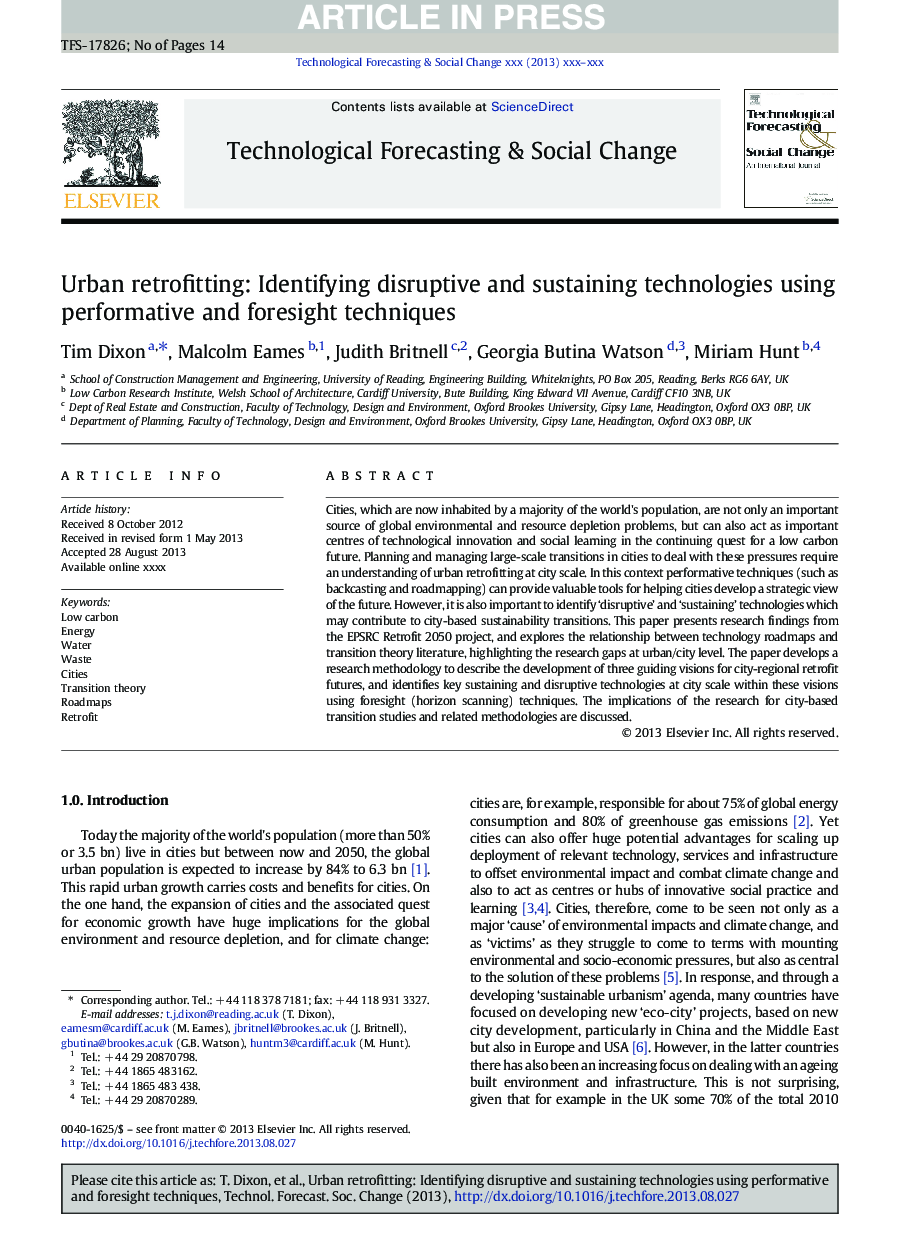| Article ID | Journal | Published Year | Pages | File Type |
|---|---|---|---|---|
| 7257048 | Technological Forecasting and Social Change | 2014 | 14 Pages |
Abstract
Cities, which are now inhabited by a majority of the world's population, are not only an important source of global environmental and resource depletion problems, but can also act as important centres of technological innovation and social learning in the continuing quest for a low carbon future. Planning and managing large-scale transitions in cities to deal with these pressures require an understanding of urban retrofitting at city scale. In this context performative techniques (such as backcasting and roadmapping) can provide valuable tools for helping cities develop a strategic view of the future. However, it is also important to identify 'disruptive' and 'sustaining' technologies which may contribute to city-based sustainability transitions. This paper presents research findings from the EPSRC Retrofit 2050 project, and explores the relationship between technology roadmaps and transition theory literature, highlighting the research gaps at urban/city level. The paper develops a research methodology to describe the development of three guiding visions for city-regional retrofit futures, and identifies key sustaining and disruptive technologies at city scale within these visions using foresight (horizon scanning) techniques. The implications of the research for city-based transition studies and related methodologies are discussed.
Related Topics
Social Sciences and Humanities
Business, Management and Accounting
Business and International Management
Authors
Tim Dixon, Malcolm Eames, Judith Britnell, Georgia Butina Watson, Miriam Hunt,
